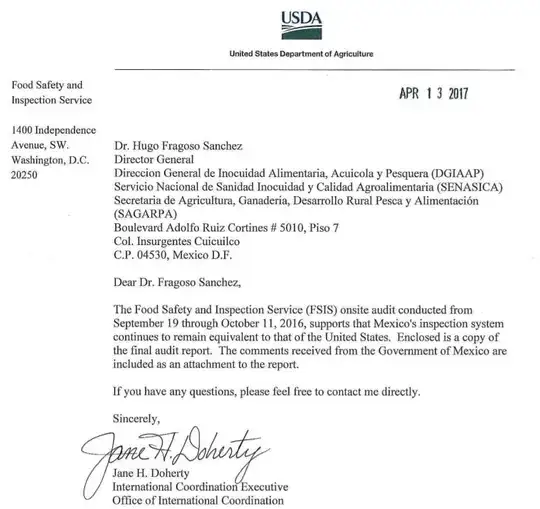The other answers and links here cover the safety issue sufficiently for me. As to quality, here is my offering.
I have found a small market near me that sells beef quite a bit less expensive than the chain markets, or Costco, and Sam's Club. I have been getting very nice looking porterhouse steaks for $2.99-3.99 lb (sold as family pack 2-3 per package). I suspected they were Mexican beef, but I didn't ask till today.
I've been buying meat for many, many, years, and I'm a pretty good judge of what good meat looks like. These steaks are usually pretty well marbled (you have to look closely, it varies) , nice color, and when cooked (I like no more than medium rare) are as tender as any other steak with similar appearance.
The flavor is quite acceptable to me, and I don't consider it "off" in any way.
I'm going to continue buying these Mexican steaks.
